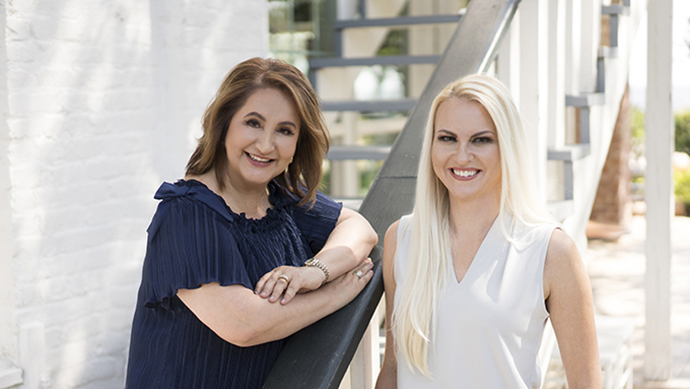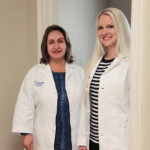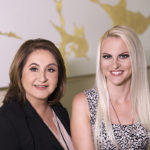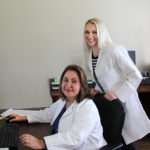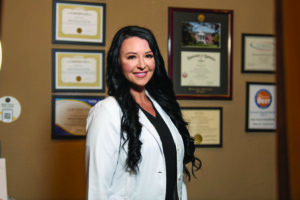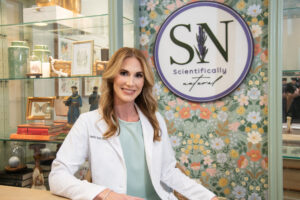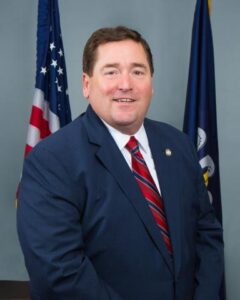Ochsner North Shore Comprehensive Headache Center
For many People, a headache is an inconvenience—something that can be fairly easily tolerated or managed with over-the-counter medications. However, for people who experience frequent and severe headaches or migraines, the debilitating pain can degrade their quality of life.
Luckily for those who suffer from disabling headaches, the Ochsner North Shore Comprehensive Headache Center in Covington serves as a bastion of hope. Neurologists Dr. Maria Carmen Wilson and Dr. Olga Fermo are headache specialists, both board certified by the United Council for Neurologic Subspecialties.
Wilson, the center’s medical director, said she and her team take a functional approach to headache treatment. “We look into all aspects of a patient’s life to identify causes and develop the most appropriate treatments. It is not a ‘one-size-fits-all’ proposition. We integrate posture, strength, biofeedback techniques, psychology, sociology and nutrition into our treatment plans,” she said.
Chronic migraine sufferers themselves, Wilson and Fermo were both drawn to the headache subspecialty because of their own medical histories. They understand, first-hand, the physical, psychological and emotional toll headaches can take on someone’s life.
“I have always been fascinated by the human brain,” Wilson said. “It is like a powerful, intricate computer system. When I was in medical school, I read an article dealing with the physiology of the brain and the underlying causes of migraines. I knew immediately it was an area I wanted to pursue.”
Fermo was also attracted to the complexity of the brain, likening her interest to that of a detective. “Of all the fields in neurology, the headache subspecialty was the one where I felt I could make the biggest difference in people’s lives. Identifying underlying causes of headaches, identifying the right treatment—these things go a long way to giving people their lives back.”
The women not only share many of the same reasons for their choice of profession, but they also share many of the same professional experiences. Before joining Ochsner, Wilson spent 17 years with the University of South Florida’s Headache and Pain Center, performing cutting-edge research and developing treatment protocols. About three years ago, a talented resident from the Johns Hopkins School of Medicine caught her attention, and she recruited her to join the team. That talented resident was Fermo.
The two worked together in South Florida until January 2016, when Wilson and her husband relocated to the Northshore to be closer to their son and his young family. “We had just finished building our dream home (in Florida),” Wilson recalled. “I had a job that I loved. But after our first grandson was born, we knew we wanted to be closer. Ochsner allowed me the opportunity to have the best of both worlds. I can continue to do the work I love, but now I can do it in a place that is close to our grandchildren. Since we’ve moved to the Northshore, I have taken a new job title: designated weekend babysitter. I absolutely love it.”
Just as she did three years ago, Wilson reached out to Fermo, inviting her to join her team in Covington. And once again, Fermo jumped at the opportunity. “Dr. Wilson is renowned in the field. It was an easy decision to follow in her footsteps, and I am honored to continue to train and work with her,” she said.
Treating severe and recurrent headaches is complex and often requires treatment from a physician with clinical experience supported by an expansive complement of healthcare services. At the Comprehensive Headache Center, patients have a dedicated team of providers who diagnose and treat their headaches as well as access to the full scope of medical services through Ochsner Health System. Additionally, patients who need immediate relief from intense or severe headaches are referred to the infusion center at St. Tammany Parish Hospital for treatment. “We are conveniently located in the heart of the Northshore, near the Ochsner medical complex, but our convenience extends beyond our location,” Fermo said.
Ochsner’s electronic medical records system also serves as a repository for medical records, making it easy for all Ochsner medical professionals involved in a patient’s care to access and share information. “Patients don’t have to worry about referral paperwork or test results. It is all handled through the portal. Headaches and migraines are complex. Getting help for them shouldn’t have to be,” Fermo said.
Headaches can be classified as primary or secondary. Primary headaches have no identifiable cause while secondary headaches are caused by another condition. The most common types of primary headaches are tension headaches. These can be triggered by stress, inability to relax, a change in sleep patterns, a change in eating habits (dehydration, hunger, caffeine) or hormones.
According to Wilson and Fermo, most people seek medical help for another type of primary headache—the migraine. Much more intense than tension headaches, migraines are usually accompanied with increased sensitivity to noise and sound. Genetic makeup does play a part in susceptibility to migraines, and they may run in families, the doctors said.
The introduction of the first migraine-specific medication came in 1993, casting a huge light on the illness and bringing hope to millions of people who experience migraines. Since that time, a surge of pharmacological and non-pharmacological treatments have been developed to address migraine pain. Nerve blocks, Botox® injections, implantable nerve stimulators and magnets are treatment options for migraines, especially for people who need to take pain medicine more than a few times each week or for those who are taking medicines for other ailments. With so many treatment options available, Wilson said it’s important for patients to consult a doctor before attempting to medicate themselves.
“People don’t realize the implications of self-medicating in a non-controlled environment,” Wilson said. “Headaches are often the consequence of taking too much medication for the acute attacks, so people can unknowingly make things worse when they try to treat their headaches themselves. If a patient is suffering from conditions like neck pain or arthritis that are contributing to secondary headaches, we can help with that as well. All too often, patients go a long time without seeking help, impacting their quality of life and their overall happiness. We want them to know we have specific treatments that can help.”
Chronic migraine is often referred to as an invisible illness, people suffering from this condition may think something is wrong with them, Fermo said. “They can become frustrated if there is no underlying cause for their pain, and they can become depressed. It can put an incredible strain on families and relationships. We want people to know they are not alone. We can help them find answers. And, most importantly, we can help them find relief.”
The Ochsner North Shore Comprehensive Headache Center is located at 1341 Ochsner Blvd., Covington. For more information, please call 985-246-2800.

